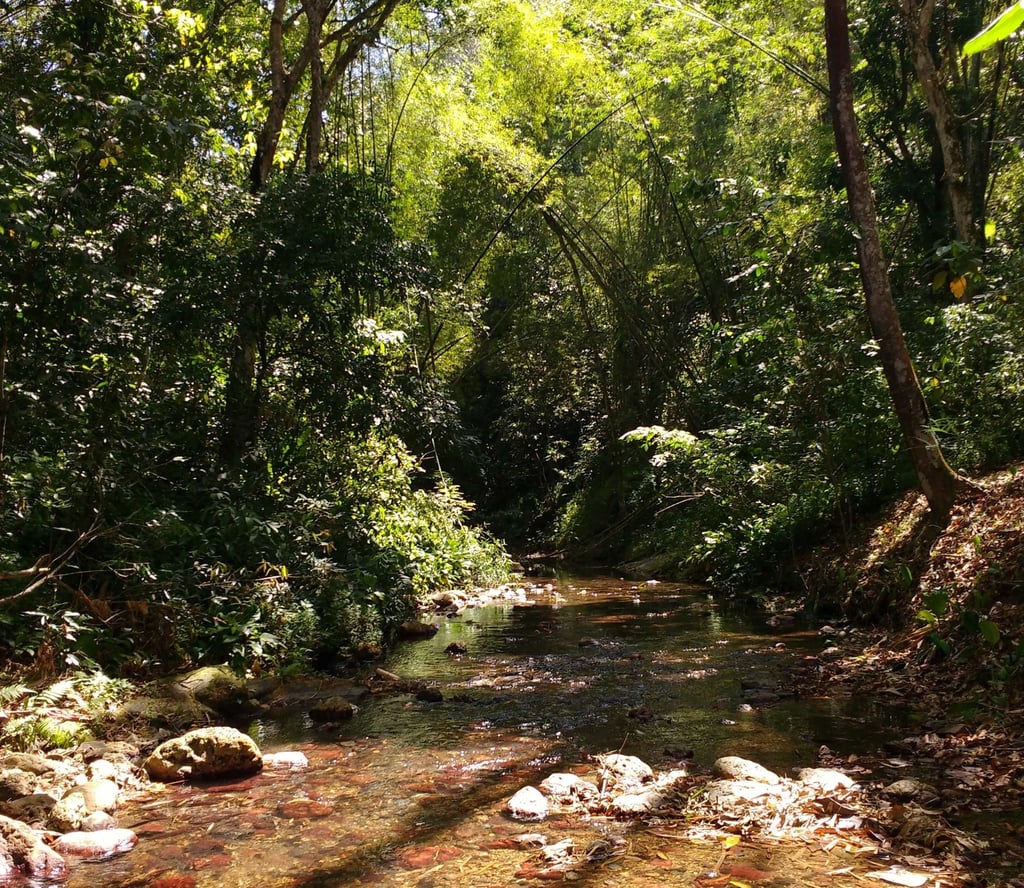NERC funded PhD project (start Sept 2026)
9/16/20254 min read


Animal personality, social interactions and invasive species biology
Lead Supervisor: Prof. Christos Ioannou, University of Bristol, School of Biological Sciences
Co-Supervisor: Dr Amy Deacon, University of the West Indies, The Department of Life Sciences
Co-Supervisor: Dr Sasha Dall, University of Exeter, Centre for Ecology & Conservation
Co-Supervisor: Prof. Martin Genner, University of Bristol, School of Biological Sciences
This exciting project is at the interface of ecology (specifically invasive species biology) and animal behaviour. Although the student will be registered at Bristol, they will spend a lot of time running experiments in Trinidad with Dr. Amy Deacon, and spend some time with Dr. Sasha Dall in Exeter to work on simulation modelling.
Project Background
How are some species able to survive and breed when dispersing to a novel habitat, establishing a new population? This is a key question in the study of invasive species, and also has importance for restocking programmes aiming to reintroduce species as a conservation measure. It is well-recognised that the number of founder individuals moving into a novel habitat (aka ‘propagule pressure’) increases the chance of establishment of the species, overcoming the problems of having a small population size (e.g. Allee effects). However, we know little about why this happens, even though understanding these mechanisms can indicate which attributes of dispersing populations make them more or less successful at becoming established. One explanation for why more founders increases the chance of establishment is based on a lottery principle: the more individuals there are, the more likely at least some will survive. Alternatively, the more individuals there are, it becomes more likely that at least some individuals will be adapted, or can quickly adapt, to the new habitat. A third potential mechanism in the case of social species is that more individuals allows larger groups to be formed in the new habitat, which often improves survival. This PhD project will use experimental and modelling approaches to disentangle the relative strengths of these mechanisms in explaining the role of propagule pressure in invasion success.
Project Aims and Methods
The overarching aim of this project is to explore why the number of founder individuals increases the chances of populations establishing in novel environments. The study species will be the guppy (Poecilia reticulata), a globally invasive fish. The project has direct application to invasive species biology, but the results would be applicable to restocking of locally extinct species for conservation. The project will manipulate the size and traits of guppy populations introduced into semi-natural mesocosms. Behaviour and morphology of individual fish will be assayed and used to form populations that vary in their phenotypic diversity as well as their size, testing the relative strengths of, and potential interactions between, inter-individual variation within populations and the number of founders. Assays of the social tendencies of individuals will be used to form populations with high or low social tendencies, resulting in fewer larger groups or many smaller groups, respectively. This will enable tests of whether effects of propagule size on survival are greater in more social animals. The population sizes of the guppies in the mesocosms will be monitored through regular censuses, and links between population size and behaviour will be explored by observing behaviours in these populations using underwater video. The project will combine the experimental approach with computer modelling, simulating how combinations of traits in founder populations, as well as their size, impact growth and survival. We encourage the student to work alongside the supervisors in setting the overall research direction, specific research questions, and the balance between empirical and modelling studies, as well as their design.
Candidate requirements
The project will suit a candidate interested in the interface between conservation, ecology and animal behaviour. The project will involve setting up mesocosm experiments in Trinidad (a tropical island) and extensive programming to analyse data (in R) and for simulation modelling. We welcome and encourage applications from under-represented groups and/or disadvantaged backgrounds. We value a diverse research environment.
Project partners
The project is a collaboration between the universities of Bristol and Exeter, two internationally-recognised centres for research in ecology and animal behaviour, with among the largest groupings of scientists working in these fields anywhere in the world. Dr Sasha Dall at the University of Exeter (Cornwall campus) will provide training and supervise the modelling component of the project. Dr Amy Deacon has successfully been running mesocosm experiments using guppies for a number of years at the St. Augustine campus of the University of the West Indies, and will supervise experimental work.
Training
The supervisory team will provide training in the wide range of methodological approaches that the project requires, including experimental design, data collection and analysis, and simulation modelling. The data collection in Trinidad will involve field seasons of several months, providing the opportunity to live and work in a vibrant and culturally diverse country. During those periods, the student will be embedded in life at the University of the West Indies. The student will attend at least one international conference.
Background reading and references
Lockwood, J. L., Cassey, P., & Blackburn, T. (2005). The role of propagule pressure in explaining species invasions. Trends in Ecology & Evolution, 20(5), 223-228.
Tobin, P. C., Berec, L., & Liebhold, A. M. (2011). Exploiting Allee effects for managing biological invasions. Ecology Letters, 14(6), 615-624.
Deacon, A. E., Ramnarine, I. W., & Magurran, A. E. (2011). How reproductive ecology contributes to the spread of a globally invasive fish. PloS One, 6(9), e24416.
Ioannou, C. C., Ramnarine, I. W., & Torney, C. J. (2017). High-predation habitats affect the social dynamics of collective exploration in a shoaling fish. Science Advances, 3(5), e1602682.
